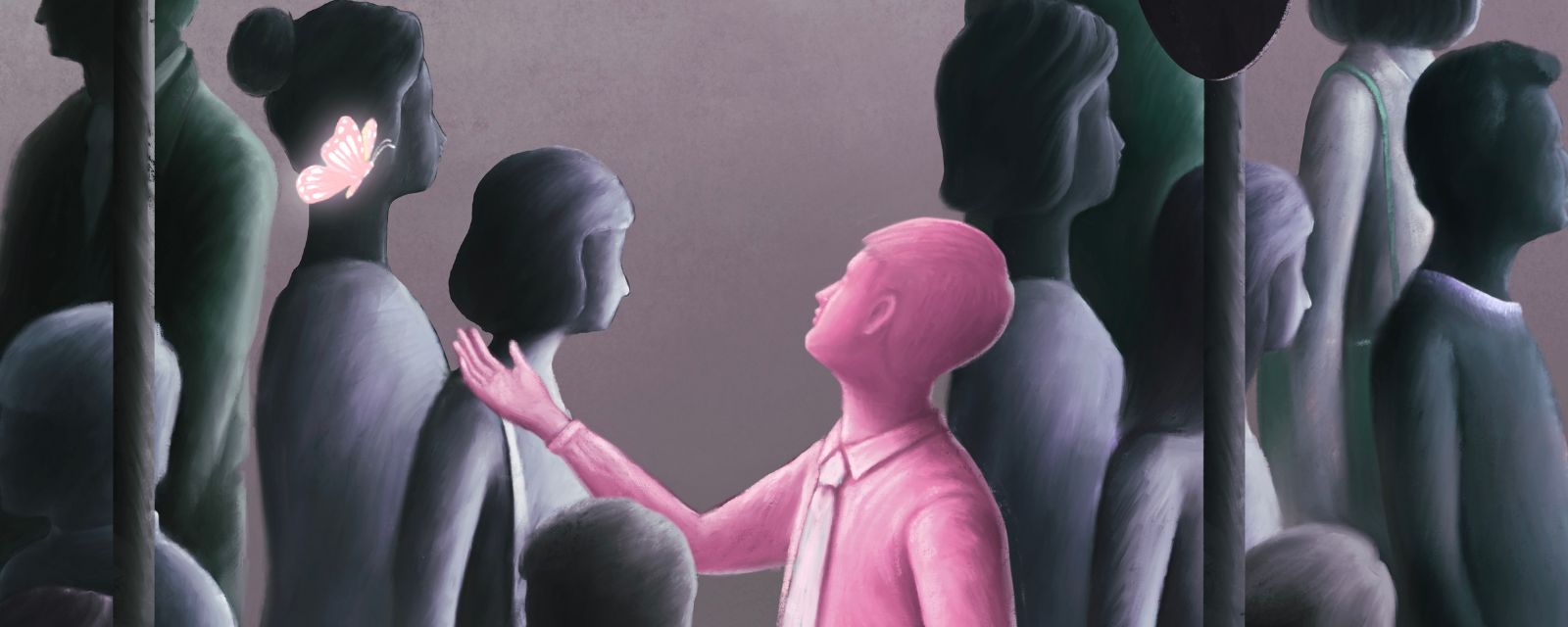Why Is My Family Stressing Me Out? Journal Prompts for Navigating Family Dynamics As An Adult
Claustrophobically close, or comfortably intimate; awkwardly distant, or respectful of boundaries. No matter what your relationship with your family is like, at some point they will stress you out. We may see ourselves as independent, self-reliant adults, while they still see us as children; we may feel confident in our choices about our lifestyle, profession, and relationships, while they may have doubts and a desire to push us in a different direction. All relationships have their share of conflict, particularly those within our family of origin. It can be difficult to balance their expectations of us with our own self-conception, and to maintain firm boundaries while remaining open and loving.
Family Systems Theory, originated by Dr. Murray Bowen, theorizes that all family relationships are governed by an emotional system that has evolved with us as a species. While each family is different, the eight interlocking concepts of Bowen’s theory can offer helpful frameworks for us to objectively assess how our relationships have developed over time, and find beneficial compromises that both honor our connections and respect our boundaries.
Bowen's concepts primarily address relationships with a family of origin, but they can apply to non-biological chosen families discovered in adulthood. These journal prompts are meant to offer you perspective and objectivity when enmeshed in family dynamics that cause stress, not to prescribe what constitutes a family, or dictate your behavior in relation to your family.
The Eight Concepts of Family Systems Theory
Bowen’s theory proposes that as we evolved, our family groups developed emotional systems to promote cohesion, collaboration, and ultimately survival. In this framework, emotions may spread among family members almost like an infectious disease. This shared emotional experience can make us feel supported and understood through a difficult time; for example, if we lose a loved one our family may grieve with us and help to bear the emotional burden. However, it can also lead to problems when tensions arise - an individual’s depression, anxiety, and stress may spread throughout the family, and if this tension is not addressed or resolved, close family relationships can become claustrophobic and toxic rather than comforting.
Triangles
This concept theorizes that emotional systems in families are based in interlocking groups of three, with two “insiders” and one “outsider” in each group. A group of three can hold more tension than a group of two because emotional energy can shift more easily from person to person. The two insiders may enjoy a slightly closer bond with one another than with the outsider, but may turn to the outsider to let off steam if the insider relationship becomes tense. If tensions rise, the outsider may become an insider, and an insider may become an outsider, and this transformation may repeat over and over in periods of heightened stress.
This dynamic is not inherently unhealthy or conflict-based in a relatively healthy family - it merely illustrates how our attention and comfort shifts over time among different relationships within it. Shifting from an “insider” to “outsider” may even be more desirable in times of great tension as we seek an outlet for difficult feelings, or separation from a tense or chaotic situation.
If you worry that a shifted allegiance within your family has left someone on the outs, or if you find yourself in that position, don’t be discouraged. Over time you’ll continue connecting and disconnecting across relationships in your family group, and that’s ok. The constant of this triangular relationship dynamic is change. Find gratitude for the space when you have it, and cherish new periods of closeness when they come along.
Questions for You:
- Who are you closest to in your family? Has this changed over time?
- Was there a particular incident that changed the relationship, or did the relationship change during a difficult period in the life of the family?
- Does part of your bond with a close family member incorporate judgment of or differentiation from another family member?
- Are there any family relationships that you wish were closer? Are there any relationships that feel too close right now?
Differentiation of Self
How we conceive of our individuality in the face of our family’s shared values and practices constitutes our conception of “self.” We may be dependent on our family to influence and dictate how we think, feel, and act (low differentiation of self) or feel independent from their influence (high differentiation of self).
The less differentiation of self we have, the more affected we tend to be by our family’s feelings, actions, and beliefs. Those with low self differentiation may constantly change to maintain cohesion with the family (Bowen calls these family members “chameleons”), ascribe to a single family ethos that they impose on others (bullies), or routinely oppose the family regardless of their own thoughts and feelings (rebels). A person with a well-differentiated self can value the influence of their family and feel empathy when appropriate, but maintains the power to choose their actions and use their best judgment regardless of their family.
In Bowen’s theory, chameleons, bullies, and rebels tend to absorb and perpetuate the predominant issues within a family system in their own ways. They are most likely to repeat patterns in their choice of partners, their relationship to substance abuse, and other practices. Those with a higher differentiation of self are better able to learn from the family’s past and make positive changes. An individual can shift among these various states throughout their lifetime, or incorporate aspects from multiple types simultaneously.
Questions for You:
- What aspects of the chameleon do you see yourself acting on? What about the bully, or the rebel?
- Do other members of your family fall into any of these categories?
- When faced with a difficult decision, do you turn to your family for advice, or imagine what they would suggest or want for you? How much do you trust your family in helping you make decisions?
- Are there any generational patterns in your family that you find yourself falling into? Are there patterns you’ve noticed that you resist repeating?
- Can you think of a time when you realized your choices would be in direct opposition to what your family would want or expect? How did you feel when making that choice?
Nuclear Family Emotional Process: Marital Conflict, Dysfunction in a Spouse, Impairment of Children, Emotional Distance
Bowen theorizes that problems within nuclear families typically fall into the four categories listed above. While family members don’t want to hurt one another, conflict is inevitable in these close relationships. To bring more stability and harmony to the rest of the family, one or more family members may choose to hold and/or conceal stress and dysfunction, but it is not possible to contain this tension indefinitely.
Marital Conflict arises when stressful conditions are channeled into the parents’ relationship with one another. For example, if money is tight, the parents may find more fault with one another than usual, projecting their anxiety about the future to anxiety about the relationship in a subconscious effort to shield the children from stress.
Dysfunction in a Spouse occurs when one spouse exerts more pressure or control onto the other, and the other accommodates them to maintain the appearance of harmony. Depending on their personalities, the relationship may tolerate a high level of control from one spouse towards the other. However, at a certain point the yielding spouse will reach a breaking point in the form of chronic anxiety, a loss of sense of self, or other problems.
Impairment of Children is characterized by the parents excessively focusing their energy on one or more of their children, and becoming overly critical, or idealizing them. This increased attention from the parents leads to increased attention on them from the child, whose differentiation of self suffers as they become used to reacting to the parents’ needs and expectations. Often the child’s behavior reflects tensions within the family that have been channeled into them by the parents unintentionally.
Emotional Distance occurs when one or more of the tensions above become unbearable for family members. They may seek distance from the family to preserve their sense of self, or reset their emotional thermometer, but risk becoming too isolated from these important bonds, which may cause other problems.
Questions for You:
- Do you remember what stressed your family out when you were a child? How did they react to that stress?
- How do you remember your caregivers’ relationships? What was their relationship with you, with any siblings?
- Did you have a sibling who always seemed to be in trouble, or who was always put on a pedestal? Were you that sibling? How do you think that affected your life, the lives of others?
- Are there any members of your family who are currently estranged from the others? Are you estranged from your family? What would the consequences be if you reconnected, if any?
Family Projection Process
Parents, grandparents, and other caregivers have a significant impact on children’s relationships with themselves and others. Notably, the caregiver’s anxieties around a child’s future can influence the child’s development regardless of whether the anxieties are based in reality. Bowen calls this the Family Projection Process, which follows three steps:
- A caregiver focuses on a child out of fear that something may go wrong
- The caregiver interprets the child’s behavior as confirmation that something is wrong
- The caregiver comes to believe something is really wrong with the child, and as a result, takes actions to remedy the perceived issue. Ironically their actions often have a negative impact despite their good intentions.
While anxious attention from the family may be meant as a remedy against anti-social behavior or emotional issues, it can also become a fixation for the child, who becomes excessively dependent on the family for guidance, attention, and approval. The child may even begin to associate bad behavior with attention from the family, as this seems to be their primary concern and topic of conversation.
Questions for You:
- Growing up, what was your family’s primary concern for you? Were they worried you would get involved with drugs? Were they worried about your sexuality or perceived promiscuity? Were they concerned for your financial wellbeing, or your academic performance?
- How did those concerns affect you? Did any of their warnings become self-fulfilling prophecies?
- What worries you in your own children, if you have any? How have you tried to protect your child from themselves?
Multigenerational Transmission Process
Issues within a family - infidelity, economic insecurity, substance abuse, etc. - are often multigenerational. Patterns may persist from grandparent to parent to grandchild through both genetics and taught/learned behavior. Most puzzlingly, we may grow up with a very negative view of such a family pattern, but find ourselves acting the pattern out through our selection of a partner, a job, or a pastime.
This aspect of Bowen’s theory points out that issues within a family don’t often arise spontaneously. They are more likely results of seeds planted by ancestors generations past, and become deeply embedded in the values and practices of a family, whether they’re desired or not. Awareness of generational patterns can give individuals more autonomy in their behavior, and may even give them the power to break those patterns. On the bright side, positive adaptations are also passed down generationally - resilience in the face of trouble, compassion and empathy for all kinds of people, innovative responses to problems, etc.
Questions for You:
- What are the traditions in your family?
- What positive and/or negative aspects do you share with your parents? Your grandparents?
- What is your caregiver’s relationship to their parents? What traits do they share? How are they different?
- If you could change one thing about your family, what would it be?
- What was something you disliked about your family growing up, but that you’ve now come to accept as part of yourself?
Emotional Cutoff
Sometimes issues in families are so difficult or intense, members require a complete disengagement emotionally. Emotional cutoff can take the form of avoiding sensitive subjects, or keeping phone calls brief and superficial. It can also be physical, and constitute a move to another state or country, or a refusal to visit even if you live in the same town. Depending on the issue, this can either be a painful but necessary release, or a stop-gap measure that leaves problems dormant, but not resolved. Even if emotionally distant relationships are superficially more peaceful, the veneer only covers deepening resentments and misunderstandings that will inevitably surface. If there’s any hope of truly dissipating the underlying issues, emotional contact must be made, even if it’s painful.
Families aren’t the only people affected by emotional cutoff. Besides allowing unresolved feelings to lie dormant, distance from family shifts pressure due to your unmet needs onto other relationships. A friend or partner may take on more importance, and while this can create greater intimacy, it can also create unrealistic expectations. You may become more demanding of their time, more critical of their flaws, or overly accommodating to their needs at your own expense. Emotional cutoff can be healthy as a temporary intervention to let difficult feelings mellow before addressing them again, but if there’s something between you and a family member that you’re worried about discussing, avoiding the issue isn’t a long term solution.
Questions for You:
- Are there any topics of conversation that your family strictly avoids? What do you think would happen if they were openly discussed?
- How much time do you spend with your family of origin vs. with friends, coworkers, romantic partners, or children? Is this by choice or circumstance?
- When you visit your family of origin, are you excited or anxious, or something in between? How do those feelings shift over the course of the visit?
- Are there any needs you have that you find fulfilled in someone outside your family? Who is this person and what needs do they fulfill for you? Is this a sustainable relationship?
- If you could bring up anything to your family and have them talk about it honestly, what would it be?
All material provided on this website is for informational purposes only. Direct consultation of a qualified provider should be sought for any specific questions or problems. Use of this website in no way constitutes professional service or advice.




